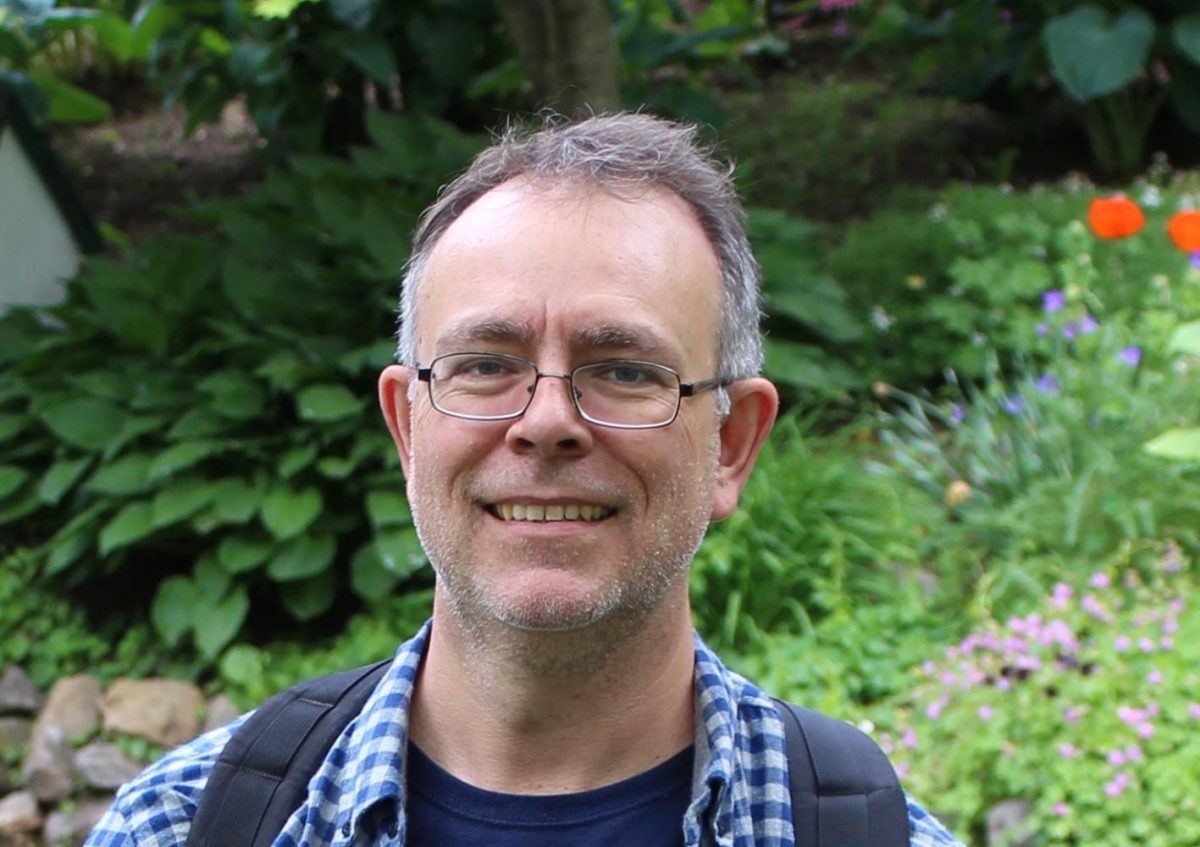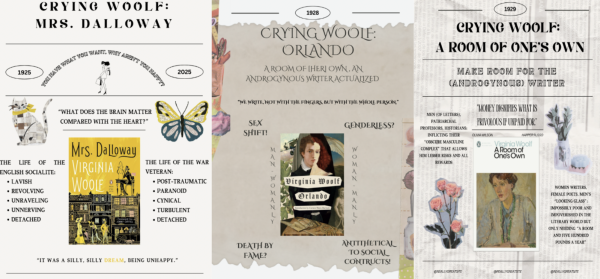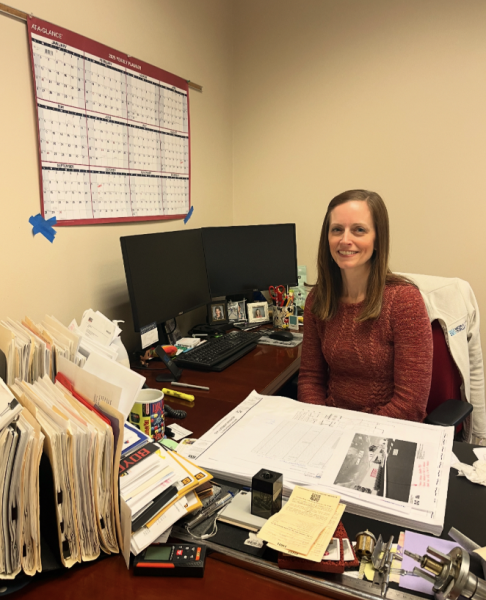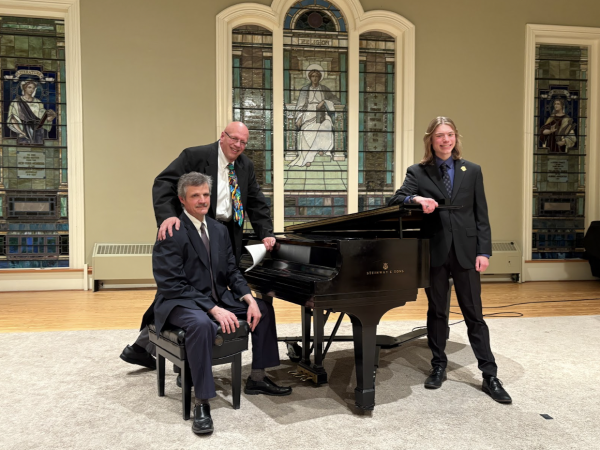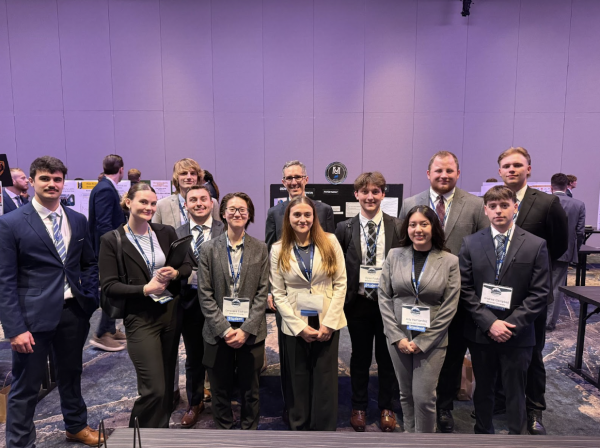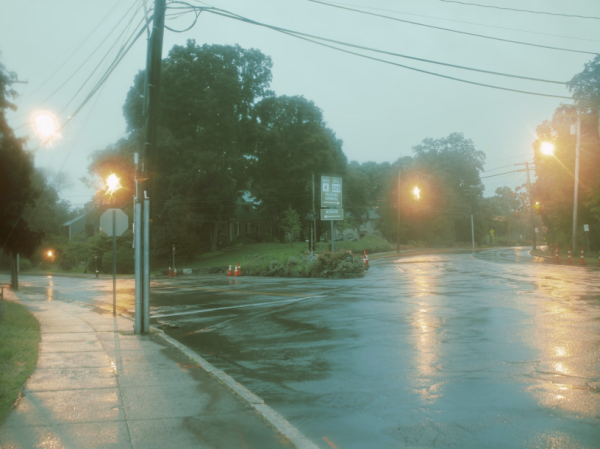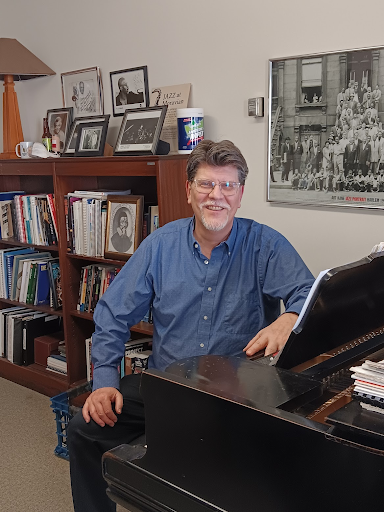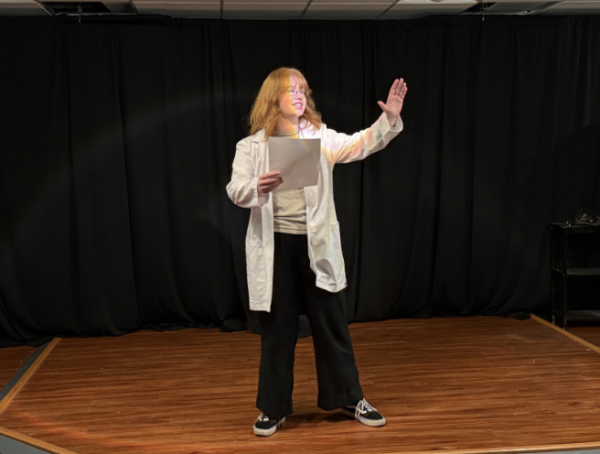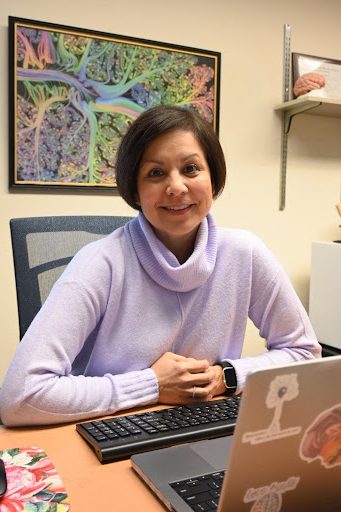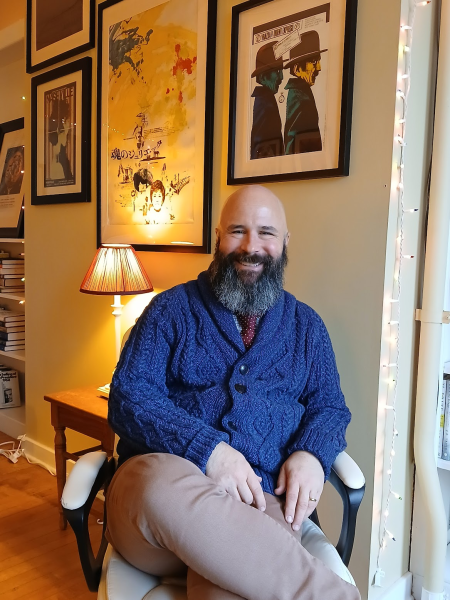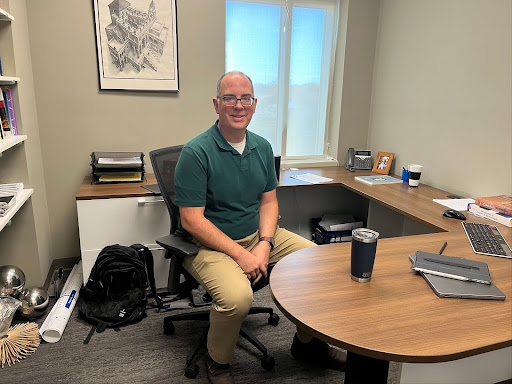Professor Spotlight: Jamie Paxton
Dr. Jamie Paxton is an associate professor of history at Moravian College. He received his B.A. at the University of Toronto, his M.A. at the Virginia Polytechnic Institute and State University, and his Ph.D. at Queen’s University in Kingston, Ontario. He is currently teaching courses on early American, Canadian, and First Peoples’ history. He specializes in the history of Native Americans, with a special interest in the lives of the Mohawks of New York and Canada.
What inspired you to go into your field of study?
I have wanted to be a historian since I was 7 years old. That’s when I did two things: I got a book on the Civil War for my birthday or Christmas, I don’t recall which, and my sister, who is much older than me, went to university. My parents foolishly allowed to let me stay in the dorm with her for a couple of weekends, so she would take me to class on Fridays. I fell in love with universities and history all in the same year. I realized in that year that I could make a living by being a historian. So I’ve been more or less on that track ever since.
What research are you currently working on?
I’ve gotten really interested in agricultural history, which may sound funny coming from someone who studies Native Americans, although it shouldn’t, because as you know, corn, beans, and squash are really important! What I’m interested in is agriculture in the Niagara region of New York and Ontario, which is where I grew up. We lived close to the American border, so Buffalo is at least as close to us as Toronto. We would cross the border to visit friends and buy food, because the prices were so much cheaper in the U.S. So, I want to go back into the 18th century and do a study of the first Europeans who moved into the region after the revolution.
Specifically, I want to look at how agriculture shapes their worldview and the way they organize their lives. It’s more of a cultural history of agriculture rather than the scientific history of agriculture. I want to think about how agriculture and this agrarian worldview crossed the border and created a cross-cultural community. The Iroquois are just down the road, too, and a lot of agricultural practices have been borrowed from them, from crop choices to the way they plant and the method of planting and harvesting. I want to look at roughly these three groups — the Americans on U.S. side, the Canadians on the Canadian side, and the Iroquois — and study how they met, interacted with each other, and organized their lives around the central focus in their culture.
What do you think is the most important recent development in your study?
Dr. Bardsley and I discovered this relatively new subfield called experimental archaeology. It is really using reverse engineering, to learn how to do things that people did in the past to gain a better understanding of it. For example, here is flint. If you find a flint tool in the ground and you want to know what it was used for, you can take a piece of flint and you could recreate the tool, or even recreate multiple copies of the tool. And then you can use it on different materials: for chopping wood, cutting grain, scraping hides. You can see if it’s effective. You can also look at the edge and see how the edge wears, and compare it to the edge of the original. And then, by the process of elimination, you’ll be able to say that these kinds of tools were used by these groups of people for these purposes.
To bring it back to my work, we don’t have a lot of written evidence concerning Native Americans, so we have to rely on other disciplines. We rely heavily on archaeologists, for instance. Archaeologists can only study things that are preserved in the ground. So if you’re talking about an Iroquois longhouse, they can only uncover the parts of it that were in the ground, but there was a whole superstructure that just disintegrates. You can think of Iroquois rooflines and wonder what they looked like and how they were constructed. Using experimental archaeology, we can experiment by building houses with different rooflines to see which provide the best ventilation or holds the most heat.
So if you’re studying Native American history or medieval European history, as we do, experimental archaeology has lots to offer and lots of applications.
What job would you have if you couldn’t be a professor, regardless of salary and job outcome?
I would say archaeologist, but that doesn’t count because they’re mostly professors. I would have to say farmer. I grew up in an agricultural region of Niagara working on farms. It was mostly peaches, grapes, stuff like that. I think I would really like to have a small farm and maybe have goats and chickens, and maybe run a CSA [Community Supported Agriculture]. It’s part of the appeal of experimental archaeology to do stuff with your hands and create something. I’m a historian and I love being a historian, but I also like the idea of being self-supporting.
What do you know now that you wished you knew when you were in college?
I went to an enormous undergraduate university that had 50,000 students spread over three campuses. But I didn’t take advantage of a lot of things the university had to offer, like clubs, activities, and studying abroad. Studying abroad is one of the things I’ve been fixed upon because it is something I would have loved to do. I love to travel and go places. But even though I knew study abroad existed, I didn’t feel like it was relevant to me. I just thought, “Oh, yeah, some people do that. You have opportunities and advantages here that you will never have again, except at great cost and having to reschedule your entire life to do it.”
What is your biggest student pet peeve?
Communication. I don’t mean this as a blanket statement. Some students are not necessarily proactive communicators when totally understandable things come up. It’s good to have heads up on stuff like that. It lets me know that they’re interested enough in the class to let me know that something’s going on. They can’t do this, or this will be late, or something simple like that. I suppose there’s other things, but being informed is always nice.
What was the last streaming show that you binge-watched or the last good book you read?
The last book I read was a novel called “Three Day Road.” It’s about a pair of Cree boys that enlisted in the Canadian Army during World War I. It’s also about being a colonized person in the colonizer’s army. There are two different personalities and how they respond to that. One tries to be very pleasing and fit in, while the other always remains an outsider.
One of the wonderful things I love about the novel is how rooted it is in indigenous culture. The person who wrote it is Aboriginal. The one character becomes a wendigo, a cannibal-like monster in the trenches of the World War. One assumes it’s because he likes his job too much, but also because he has left the culture behind. Wendigos are described as very antisocial. I like the fact that there are these sort of narratives. In some ways, it looks like a very conventional story, but it is framed and rooted in a different cultural tradition.
What is something interesting about you that most of people don’t know?
I just returned from a flint knapping, where I learned how to turn volcanic rock into a knife blades and spear points. I loved the experience. Flint knapping requires patience and precision. Having to sit for a long time to turn a hunk of rock into a useable tool by hand suggested to me how social and collective work was in the past. People who possess the skills taught those, like me, who do not. We learned from each other, and I can see community growing organically from the process.
What’s your spirit animal and why?
I’m not going to answer that question, because I associate with and study people who attach spiritual qualities to animals. I don’t want to insult them. But quite honestly, I like cats. They’re independent. They’re pretty much aloof, which appeals to me. They’re not needy animals. And if you’re sick, they’ll come up and sit beside you and nurse you for a while.
When I was here for May registration, you told me about experimental archaeology and how you hoped it would become a class. How is that going?
It will be a class next spring; Dr. Bardsley and I are teaching it. We have 70 acres of land up in Upper Mount Bethel, so we’ll use that for class. It will be organized like a science class, so we’ll have regular class meetings, and then there will also be a lab section. The class meetings will be partly about learning what experimental archaeology is and how to do it in a theoretical and abstract way. The lab sections will be for doing the hands-on activities, like flint knapping or dyeing cloth or pottery making. The grand project for the semester is that we’re going to build a shelter: either a roundhouse, a pithouse, or a longhouse.


